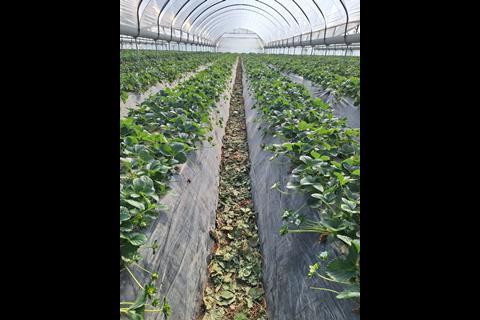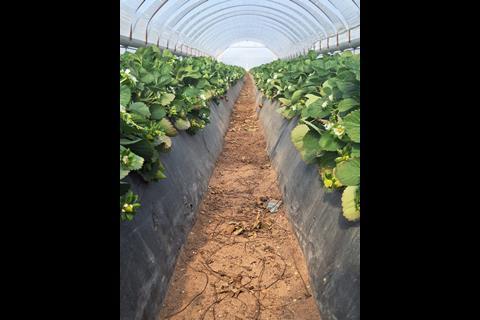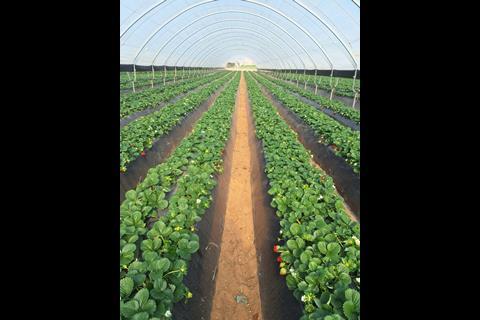As the Greek strawberry season reaches its halfway point, Fruitnet talks to Alexandros Polydoropoulos, agronomist at Greek producer and trader Labidino, about the impact of the hot and dry weather conditions and the outlook for 2024
How have the weather conditions been for the 2023/24 strawberry season in Greece?
Alexandros Polydoropoulos: Cultivation started back in October with major problems, as many producers lost a large proportion of trimmed plants which could not be established in the field. Generally, the plants from different nurseries were not fully prepared for transplanting. The plants weren’t “ripe” or hardened enough for the hot and dry weather during October, so there were big plant losses, even as much as 50 per cent.
Luckily, in most cases, producers were able to find plants to fill their fields. The mortality of young plants at the early stage of transplanting is worsening over the years, and some nurseries are proposing later plantings as a possible solution.
Did the season face delays as a result?
AP: In the end, the Greek strawberry season started in the first week of November as usual, with potted plants of the Fortuna variety. This current season, Victory remains the leading variety in Greece by far, followed by Fortuna, Arwen, Red Sayma and others. Average production fell by 15-20 per cent despite the total cultivated area in the wider region increasing by about 10 per cent compared with last season.
What other challenges are growers facing at the moment?
AP: Growers are having to deal with labour shortages, high energy costs and the constant recall of many commonly used pesticides. Prolonged good weather conditions have helped the plants that had to be replanted to gain lost ground. Unfortunately, on the other hand, pressure from pests like mites has intensified.
What are the top markets for Greek strawberries over the winter period?
AP: The markets of central and western Europe like Greek strawberries. They are generally accepted as a safe and tasty fruit, so they have gained a stable place on supermarket shelves and are enjoyed by consumers. More and more wholesalers and supermarkets are coming to Greece to make deals for strawberries. The first three months of the season have already passed without any major quality problems and growers and traders are happy with that. These are just some of the reasons why prices have increased by up to 20 per cent compared with last year.
So things are looking more positive for the second half of the campaign?
AP: Valentine’s Day is approaching and demand is expected to increase further as people always think more about strawberries on this day. Greece is an important production region in Europe for the winter season, and the strawberry category seems to have strong growth potential in the coming years.






